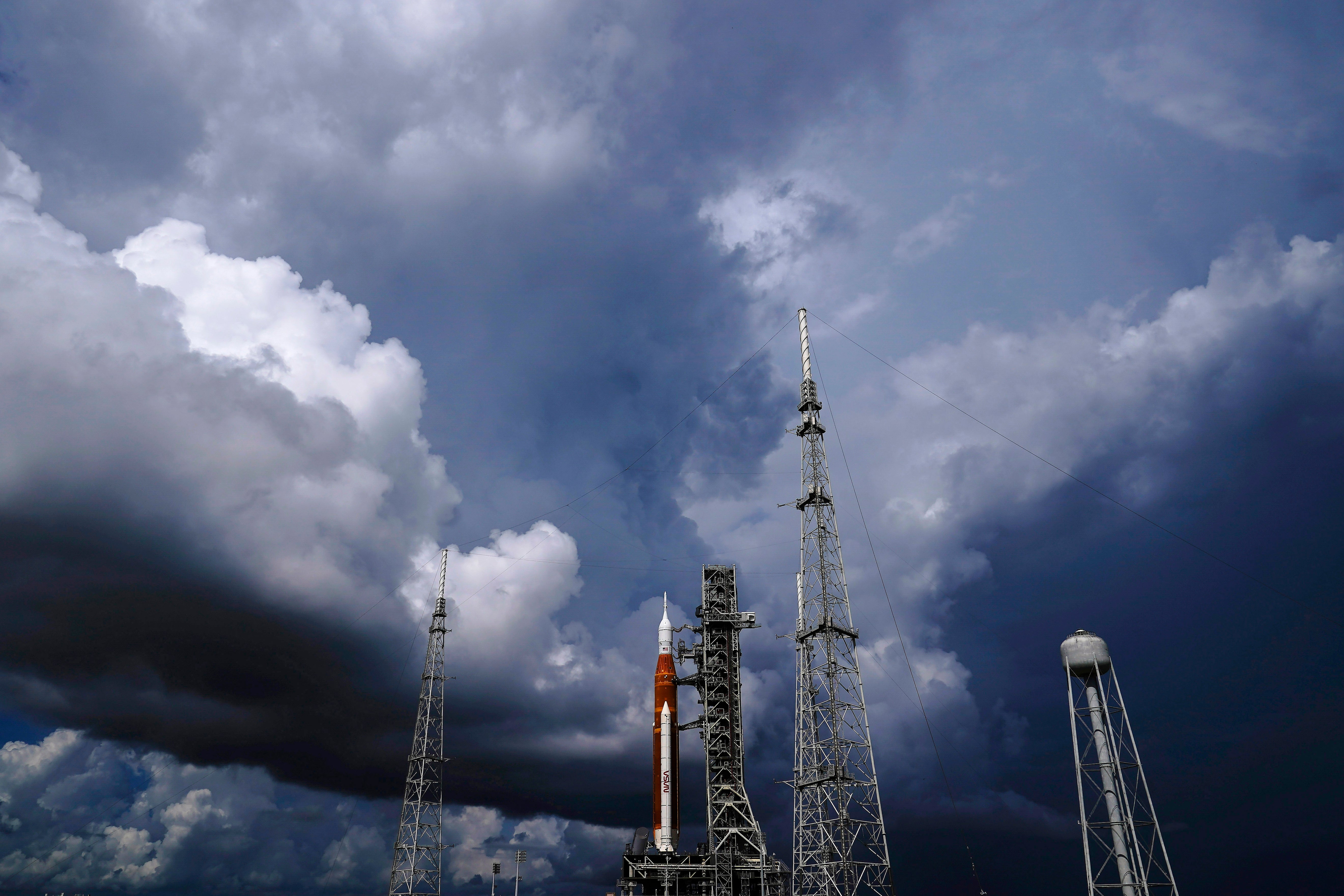Nasa Artemis launch: Space agency to roll Moon rocket off launchpad and could be forced to delay by months

Nasa will give up on launching its Artemis Moon rocket soon and is to roll it away from its launchpad.
A storm is set to lash the Kennedy Space Center complex where the rocket will take off from, as it lands in Florida.
The space agency’s announcement marks another round of bad luck for the problem-plagued mission. The latest issue could mean that a launch is delayed by months.
Nasa said that it had taken the decision to roll back the rocket because of the approach of Hurricane Ian. The latest predictions suggested that the weather is unlikely to improve and would lead to the planned launch probably being cancelled, the space agency said.
Rolling back the rocket will both protect the equipment as well as giving the team time to themselves. “The decision allows time for employees to address the needs of their families and protect the integrated rocket and spacecraft system,” it said.
The Space Launch System (SLS) rocket and Orion spacecraft have been sitting on the launchpad in Florida since 17 August, after they were rolled there in a 10-hour journey from Nasa’s Vehicle Assembly Building. It was initially scheduled to take off later that month, on 29 August.
That first attempt at launch was cancelled after a sensor error, however. Nasa then tried again, on 3 September, but found a hydrogen leak that led to that attempt being cancelled again.
Engineers had hoped that they could take the time to fix the rocket’s problems before trying again with a new launch attempt, scheduled for 27 September. But the approach of the tropical storm put that date in doubt.
Join our commenting forum
Join thought-provoking conversations, follow other Independent readers and see their replies
Comments
Bookmark popover
Removed from bookmarks